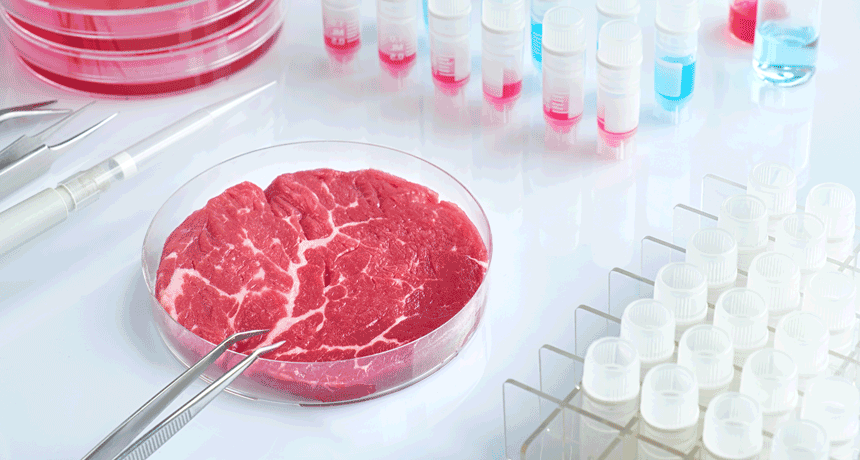WHAT’S IN MY BURGER? FAKE FOOD YOU SAID?
WHAT’S GOING ON
If 2017 was the year of fake news, 2018 is becoming the year of fake food.
From counterfeit food to food products being developed in laboratories to act as substitutes to real food, these changes are sure to get your taste buds frothing (or not).
With vegan and vegetarian diets on the rise in advanced and developed countries, we are seeing a foray of meat substitute products flooding the market.
Memphis Meats, a food technology company in San Francisco is producing animal cells in the lab to create meat without the animal. In 2016, it unveiled a lab-cultured meatball that cost $18K per pound to grow. In 2017, it released samples of lab -grown chicken and duck meat, with the cost per pound reduced to $9K. As prices fall, it hopes to launch commercially in 2021.
Tyson Foods (the largest meat processor in the U.S) is now injecting more money Into fake meat (aka Plant-Based Meat) with CEO Tom Hayes stating that “Plant-based protein is growing almost, at this point, a little faster than animal based, so I think the migration may continue in that direction”.
Finless Foods (a food start-up) aims to use biotechnology to create synthetic fish, which its founders say requires less energy than creating synthetic meat. It plans to release its first product, Bluefin Tuna, in 2019.
This trend is growing so fast that meat producers are seeing it as a threat to their industry. The US Cattlemen’s Association have recently petitioned the government to exclude plant-based and lab-grown products from the definition of meat.
In fact as of September 2nd, Missouri became the first state in the USA to pass a law that prevents food producers from using the word “meat” in reference to anything that does not come from harvested livestock or poultry.
We are seeing a similar movement here in Australia where the dairy farmers industry are calling on the govt. to ban fake milk (aka plant based milk such as Soy, Almond, Oat) from being called milk. Dairy farmers in the USA are also placing pressure on the FDA to do the same thing.
And the story to sweeten this new world of ‘fake food’ came from our own shores early this month after research claimed that half the honey sold in our supermarkets is fake. This means the honey is adulterated with cheap sweeteners while claiming it is ‘pure’. The ACCC is taking this seriously launching an urgent investigation into the honey industry.
GROWTH MANTRA’S PREDICTION
- We expect to see more ‘fake’ food product innovation coming from science / tech based companies to meet the growing trend of the socially and ethical consumer. As more and more consumers look to alternative consumption options to help lower their impact on the environment, we expect to see this grow in the next decade as the impact of global warming continues to wreak havoc on our planet.
- This is likely to see large food manufacturers either collaborating or acquiring tech food start-ups to help sustain their growth and / or prevent them from losing market share to this growing new breed of food manufacturers.
- We expect to see innovations in packaging, apps and blockchain to tackle the growing problem of counterfeit foods.
- Alibaba is investing in Blockchain technology to help combat the large proportion of counterfeit products coming from China. Recent research shows they have filed over 10% of the world’s Blockchain patents.
- Diageo have just introduced an app that enables consumers to scan a QR code to confirm the authenticity of their whisky bottles.
- PURITI, a brand of honey have just launched a unique honey jar which has features to prevent international counterfeiting.

